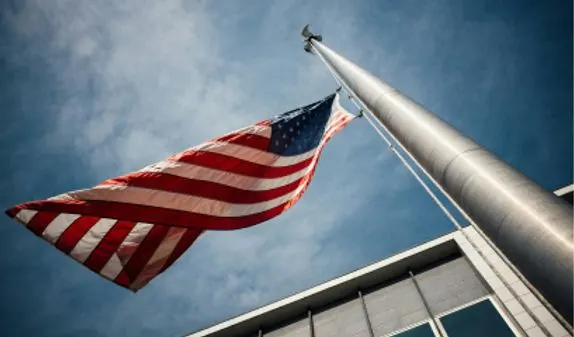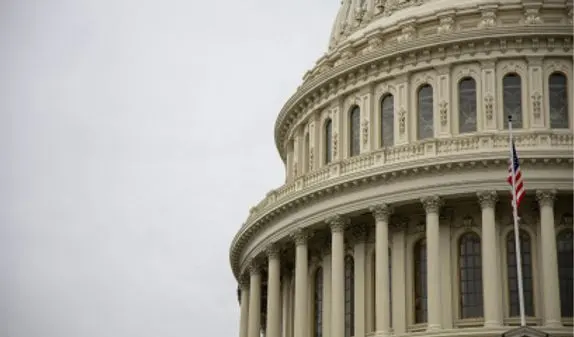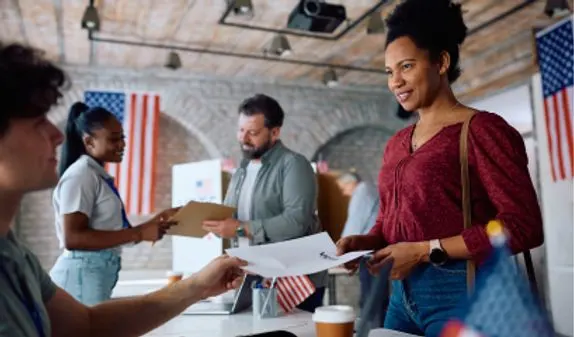Learn
For the General Public
University of Michigan offers a wealth of resources on democracy and civic empowerment for our broader community.

Democracy Collection
At a time when our political landscape is becoming increasingly polarized, having a solid understanding of the democratic process can help you navigate difficult conversations. The Democracy Collection, a curated portfolio of clips, courses, and Teach-Outs™, provides you with a deeper understanding of democracy's role in our society. Explore the importance of civil engagement, the complexities of the democratic process, and how you can organize your community to rally around current policy and social issues.
Learn More

Dialogues in Democracy
Dialogues in Democracy is an interdisciplinary collection of University of Michigan Press books that explore the core tensions in American political culture. The University of Michigan Press is one of the nation's top publishers in US politics and has worked with the MAM student group to curate a reading list that provides authoritative background on many of the issues in the news. With the support of the Provost's Office and libraries, all the books have been made open access, free to read and download for anyone with an Internet connection.
Learn More

Our Compelling Interest Series
The Our Compelling Interests book series lays out the premise that for a democracy to thrive, diversity is critical. Major demographic changes taking place in America today necessitate a renewed discussion about diversity. The question we must now ask ourselves is whether we are indeed planning properly, and what shape that plan must take if we are to be successful and prosperous moving forward together. The series promises to explore diversity—in racial, socioeconomic, gender, religious, sexual, and other forms—through accessible, sophisticated, and balanced treatments by leading scholars, writers, intellectuals, and commentators.
Learn More
Poverty On The Ballot
Poverty should be part of every candidate’s platform this election year. The 2024 election is an important opportunity to consider how our society addresses poverty and related issues, from the national to the local level. As a public institution and nonprofit, Poverty Solutions at the University of Michigan is a non-partisan entity. Our goal is to provide Michigan voters with reliable information on poverty issues, so they can better engage with policymakers, candidates, and each other to advance the prevention and alleviation of poverty.
Learn More
For the U-M Community (Students, Faculty and Staff)
Innovation. Exploration. Inquiry. The breadth of the University of Michigan’s expertise opens our community’s to a myriad of paths for democratic engagement.
Promoting Democracy Teaching Series
Promoting Democracy Teaching Series offers programs and resources designed to help instructors across academic disciplines harness the momentum of each election season to promote civic learning and democratic engagement while improving their teaching practice. A collaborative partnership between Ginsberg Center and Center for Research on Learning and Teaching, Promoting Democracy Teaching Series is offered during U.S. presidential and midterm election cycles.
Learn More
Michigan in Washington
Contact: Pauline Jones, Director
The Michigan in Washington (MIW) program offers an opportunity each year for 20 undergraduates from any major to spend a semester (Fall or Winter) in Washington, D.C. Students combine coursework with an internship that reflects their particular area of interest (such as American politics, international studies, history, the arts, public health, economics, the media, the environment, science, and technology). The semester in Washington is action-packed. Students work four days a week (32 hours), attend an elective one evening a week, and a policy research course on Friday mornings. They spend their weekends exploring the city and taking in cultural events. Most leave Washington longing to return.
Learn More
Prepare Students for Community Engagement
We help prepare undergraduate, graduate, and professional students at U-M for community-engaged learning in both curricular and co-curricular settings. Our resources and interactive sessions prepare students across U-M's 19 schools and colleges to engage in a wide range of community-based contexts and types of projects. Our student workshops and resource materials are designed to complement your own pedagogical commitment to preparing students for engagement, and we can consult with you on how to connect our sessions to your own instruction.
Learn More
Civic & Democratic Engagement Resources for Faculty & Staff
These resources suggest a number of possibilities - from information to activities to assignments - for how to incorporate civic and democratic engagement in your course or program. Take time to explore!